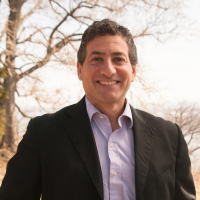T.H. Culhane

Dr. T.H. Culhane is an Associate Professor at the Patel College of Global Sustainability at the University of South Florida. He is the Director of the Climate Change concentration and teaches courses in the Food and Climate concentrations. He is also the co-founding director of the not-for-profit educational corporation "Solar CITIES Inc." which helps community stakeholders solve urban ecology and development issues surrounding waste-water, solid waste, food security and decentralized clean energy production.
For the previous five years Culhane was a Visiting Faculty Researcher and full professor at Mercy College New York, teaching courses in Environmental Sustainability and Justice, Environmental Psychology and Urban Ecology and leading students on "service learning" and "voluntourism" trips to share environmental technologies in impoverished parts of the Middle East, and the Caribbean.
Culhane has been a Google Science Fair Judge for 6 years and has worked with the US Office of Naval Research and UCLA on STEM science education projects with at risk-youth. In 2010 Culhane and the Palestinian Wildlife Society introduced small-scale biogas technology to stakeholders in the West Bank and Gaza through funding from the US Embassy, US AID and private foundations, and he has been working with the Arava Institute for Environmental Studies and Alumni Network, Engineers without Borders Palestine, Al Najah University, and the Eco-village Network Global Campus, and the HomeBiogas company in Palestine and Israel on a yearly basis since 2006, working to help ensure "peace through prosperity and permaculture".
Culhane got his Ph.D. from UCLA in Urban Planning, living with and working on solar energy and waste management projects with the trash recycling communities of Cairo Egypt, and his Master's in Regional and International Development working on urban agroforestry issues in Guatemala. His undergraduate work at Harvard included a year in the primary rainforests of Borneo, working on community ecology issues with hunter-gatherer tribes. His mission is to empower communities to regain ecological self-sufficiency and economic security through regenerative systems integration, believing that we have all the puzzle pieces to make thriving societies, and just need to come together and put them together.